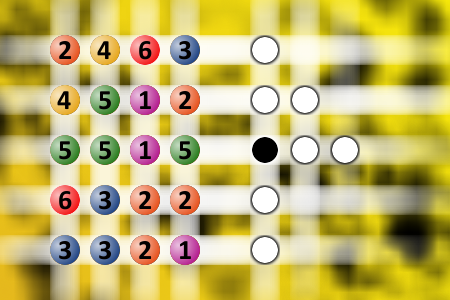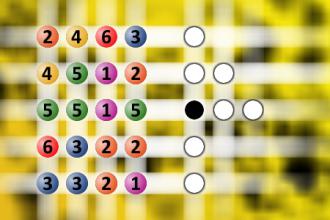Which is a winning combination of digits?
The computer chose a secret code (sequence of 4 digits from 1 to 6). Your goal is to find that code. Black circles indicate the number of hits on the right spot. White circles indicate the number of hits on the wrong spot.Correct answers: 43
The first user who solved this task is Djordje Timotijevic.
#brainteasers #mastermind

So, Jane asked the detective...
"So," Jane asked the detective she had hired. "Did you trail my husband?"
"Yes ma'am. I did. I followed him to a bar, to an out-of-the-way restaurant and then to an apartment."
A big smile crossed Jane's face. "Aha! I've got him!" she said gloating, "Is there any doubt what he was doing?"
"No ma'am." replied the sleuth, "It's pretty clear that he was following you."
"Yes ma'am. I did. I followed him to a bar, to an out-of-the-way restaurant and then to an apartment."
A big smile crossed Jane's face. "Aha! I've got him!" she said gloating, "Is there any doubt what he was doing?"
"No ma'am." replied the sleuth, "It's pretty clear that he was following you."

